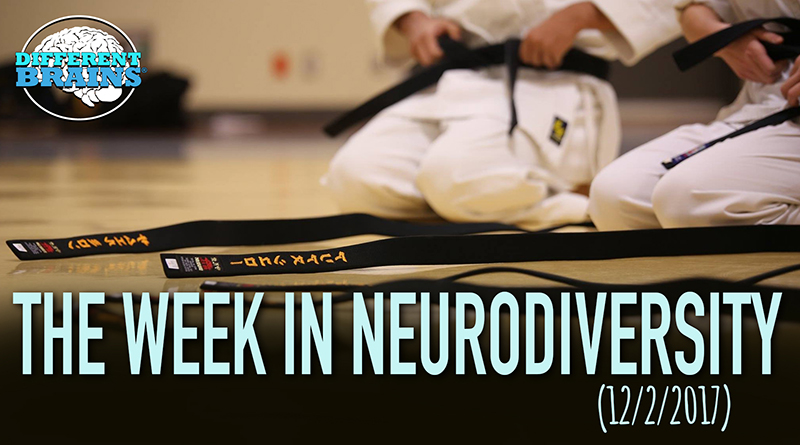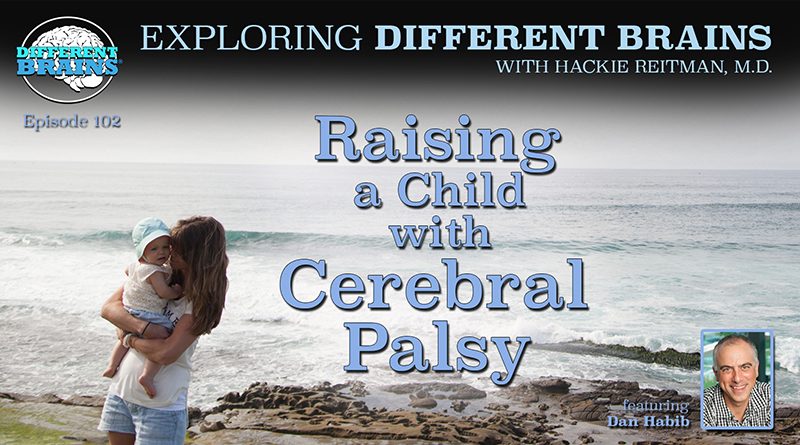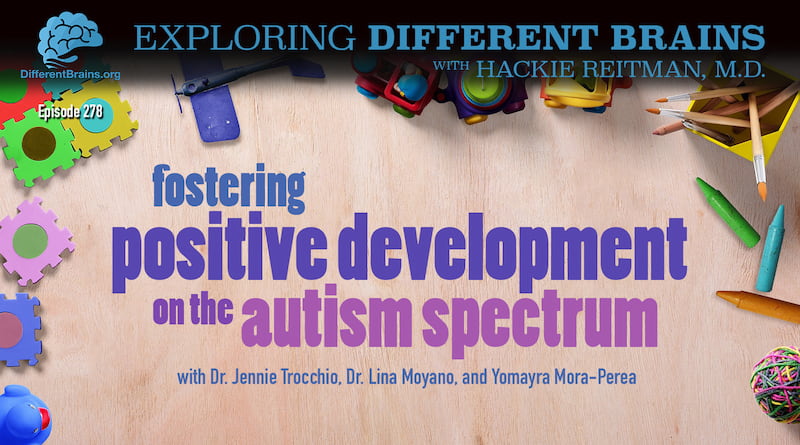Living With Tuberous Sclerosis, with Preston Fitzgerald | EDB 239

Self-advocate Preston Fitzgerald discusses tuberous sclerosis
(11 minutes) Preston is currently a student at the University of North Texas, studying Consumer Experience Management. He is an advocate for Tuberous Sclerosis Complex (TSC), which he was diagnosed with at seven months old.
AUDIO PODCAST VERSION:
Or look for us on your favorite podcast provider:
iTunes | Stitcher | SoundCloud
FULL TRANSCRIPTION
HACKIE REITMAN (HR): Hi, I’m Dr. Hackie Reitman. Welcome to another episode of Exploring Different Brains. And today would take you all the way down to Texas. For one of my favorites, he’s actually one of our different brains, interns. And we’re going to learn all about one of the great self advocates for tuberous sclerosis: Preston Fitzgerald, a college student, a man about town, a self advocate. Preston, welcome.
PRESTON FITZGERALD (PF): Thank you for having me here. So glad to be here.
HR: Well, we’re glad to have you. Why don’t you introduce yourself to the audience properly, tell them a little bit about yourself.
PF: Okay, I’m Preston Fitzgerald. I’m 22 years old, I, I have tuberous sclerosis. I currently go to the University of North Texas and study hospitality.
HR: And what’s tuberous sclerosis. A lot of us don’t even know what that is. I know, I didn’t until some years ago, when I had to learn about it quickly.
PF: So tuberous sclerosis is a genetic disorder and where tumors grow, and many of the organs around your body, from your brain to your eyes to your kidneys. And everywhere else in between. Many people with tuberous sclerosis also have epilepsy and including me, and they also have different also can have different learning disabilities such as dyslexia.
HR: Okay, and so we get, we get a lot of seizure disorders with this. And also it affects other organ systems. For instance, with you, it’s affected your kidneys as well, correct?
PF: Yes, that’s right.
HR: And what are some of the treatments you’ve undergone for tuberous sclerosis?
PF: I mainly have different types of medicine. I take an oral chemo to to keep my tumors in the same size as they are — just to stop them from growing.
HR: So its effect on you growing up… It must have been something with the seizures I’d imagine?
PF: Actually, it didn’t start any new seizures, my seizures started back years later. I would say it mainly it affected how I ate I would say the most I would say because it adds up beginning of it made me very nauseous every time I ate. So it was hard to eat anything in the morning. And so I lost a lot of weight I would say.
HR: Tell us about your experiences with epilepsy, which is a frequent comorbidity with tuberous sclerosis.
PF: I’ve had some very different types of epilepsy. I don’t remember many of my seizures from when I was very young. But I would say that I had many, as much more often when I was little, I had different ones. The ones I had when I was little were when I was younger, I would fall on the ground and started twitching. And I would not remember many different I mean, I would just be very exhausted for the rest of the day, or I would have to go to the hospital. From age 18 till now I’ve just had the ones for I stare into space, and they’re called partial seizures. They’re much — they happen much less often. They’re usually triggered by different things that I either forget to do, or that are around me at the time or have a time that was… or something that I was around
HR: And you volunteer for the Tuberous Sclerosis Alliance?
PF: Yes, I do.
HR: And tell us how you got into that.
PF: So when I was my ever since I was little my family has gotten very involved in, in, in helping and raising money for the Tuberous Sclerosis Alliance. In honor of me. They started a fundraiser called a nonprofit called Peace Love and Lemonade. And we did different fundraisers and galas and walks and runs. And now that we’ve gotten much busier and much more difficult to do that so I decided to take it upon myself to volunteer for the Alliance and try to raise awareness myself now then I can
HR: May 15th is a big day — what’s May 15th?
PF: May 15 is Tuberous Sclerosis Awareness Day.
HR: What are you going to be doing that day?
PF: I will be doing a walk — a walk run ride with my family members and friends.
HR: All right, what made you decide to really start advocating and be the self advocate your I know for different brains, you’ve written articles, you’ve doing this interview, you’re doing your best advocate? What made you become the self advocate that you are?
PF: Think I wasn’t inspired by other self advocates. And I watched what my family did for me when I was little, and I thought I wanted to do that. So it inspired me to go on and speak it upon myself because I’m one of the few with this disease that can say how I feel.
HR: Well, I know you’ve done a great job with different brains advocating and, and self advocating and helping, helping many. Preston, where do you see yourself in five years?
PF: In five years, I say I like graduating college by then I want to work for when is my hospitality degree to work for a hotel chain or airline. So I can travel around the world and help other people.
HR: Preston, what are some of the tools that you use to cope with some of the aspects of tuberous sclerosis?
PF: The tools — I use many different different tools to cope with tuberous sclerosis. I use Roma therapy to help you relax, because it is to risk arrest is stressing out at times. I also love to draw. And I and most of all, I would say that my friends and family has helped me the most by supporting me.
HR: Is there anything that you’d like to cover that we haven’t touched on yet?
PF: I would just like to say that is very, very important to embrace the differences that everyone has — it’s what makes you special.
HR: Very well said and all of our brains are different, that’s for sure. And that’s why we have Different Brains. What is the biggest thing that you’d like people to know about tuberous sclerosis?
PF: I would say the biggest thing will be that: a very small amount of people that have this that have tuberous sclerosis, are unable to speak for themselves, or do or do a walk or talk or say how they feel so… I would say that if you can, you need to express how you feel so we can find more research and find a cure.
HR: Very well said. All right. Well, Preston Fitzgerald all the way from Texas. Good luck with your college and getting your hospitality degrees and getting on with everything. Thanks for educating us on tuberous sclerosis. And thanks for everything you do here at different brains. Preston Fitzgerald, let’s have you back again real soon. Thank you.
PF: Thank you for having me here. I can’t wait to do it again.




